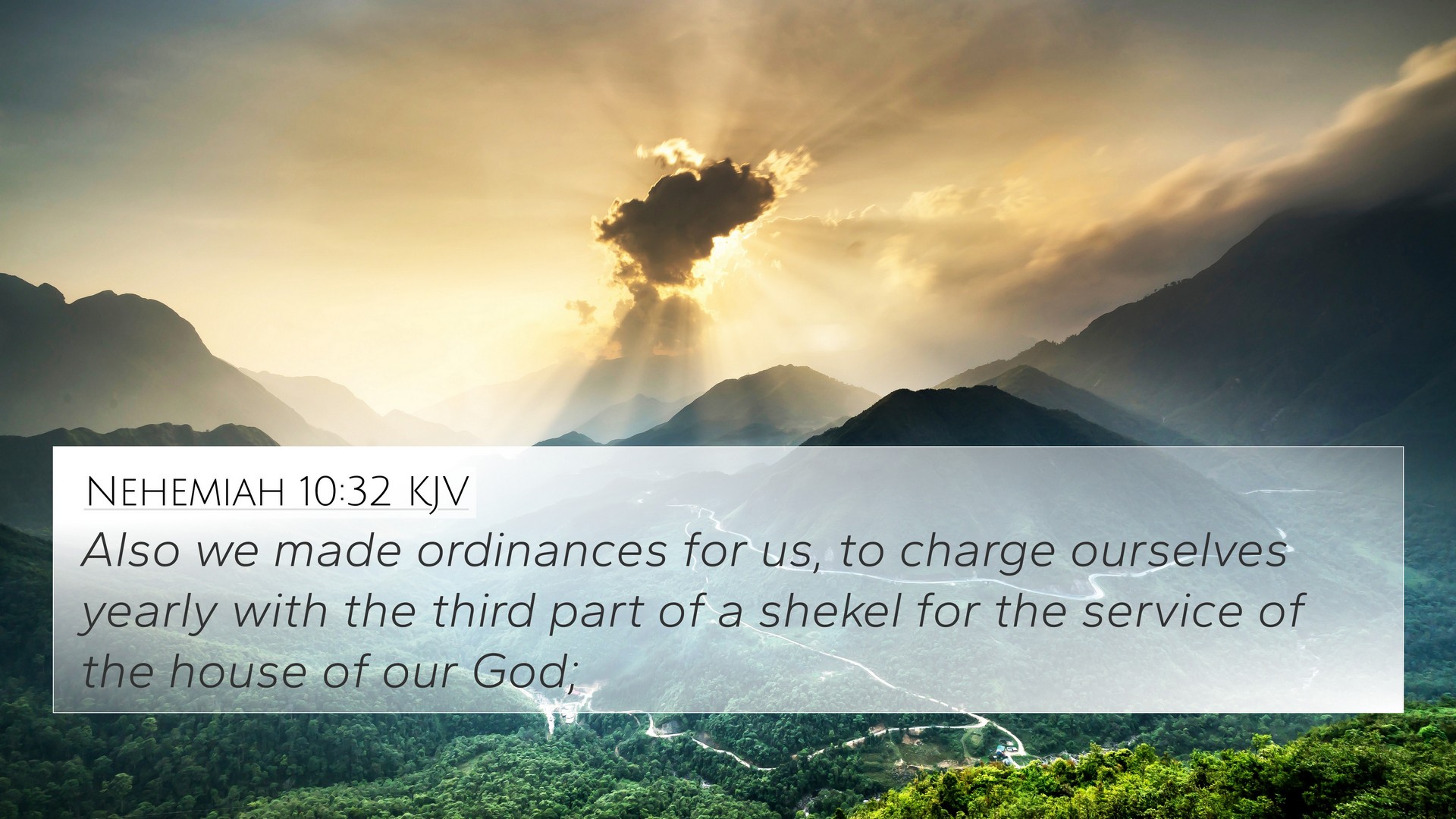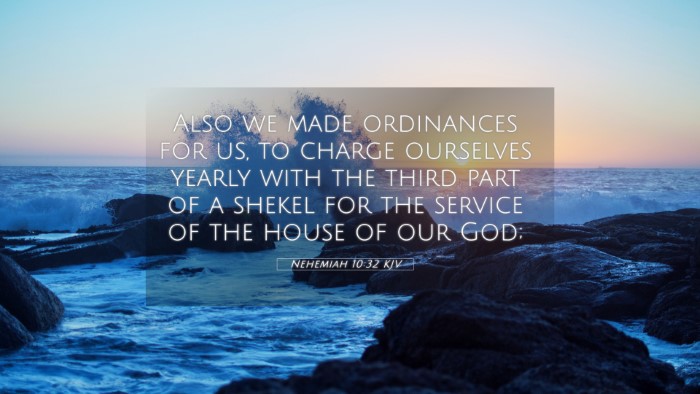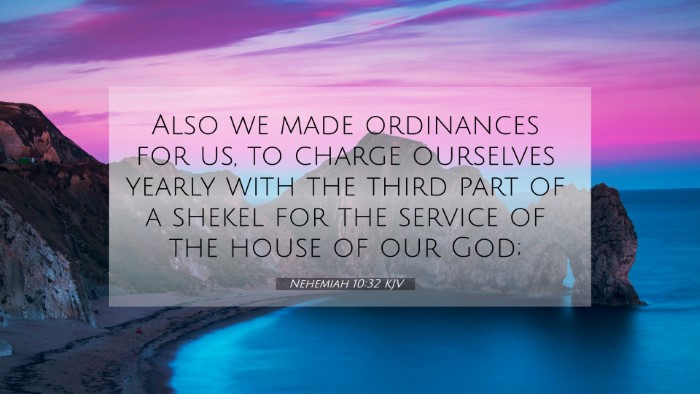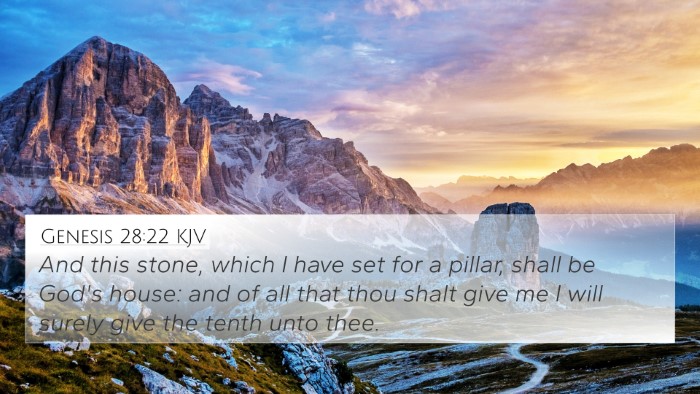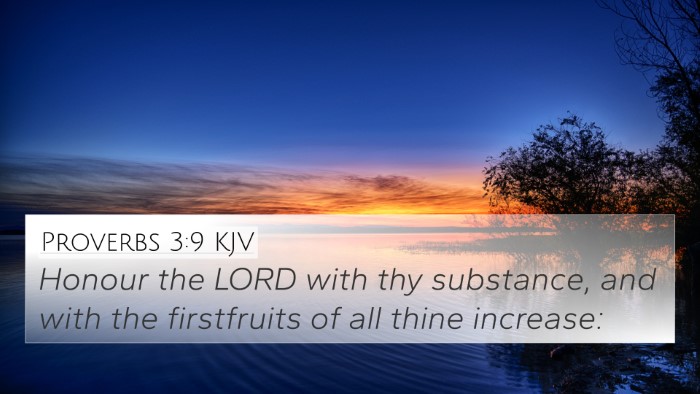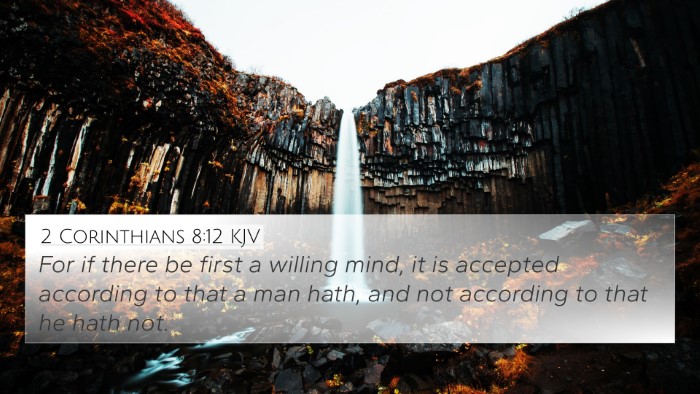Understanding Nehemiah 10:32
Nehemiah 10:32 states: "We also take upon us the obligation to give yearly a third part of a shekel for the service of the house of our God."
This verse encapsulates the commitment of the people of Israel to support the temple and to fulfill their religious obligations. Let's explore the deeper meaning of this verse through the insights of various public domain commentaries.
Context and Overview
The Book of Nehemiah details the restoration of Jerusalem and the covenant made by the returned exiles. In chapter 10, the people affirm their dedication to God’s law and the maintenance of the temple. This commitment is crucial as it reflects their desire to restore their relationship with God in post-exilic Israel.
Commentary Insights
-
Matthew Henry's Commentary: Henry highlights the significance of the obligation to give, marking it as a necessary act of devotion and service to God. He notes that such financial commitments are expressions of gratitude and faith, indicating the people's understanding of their Biblical responsibility.
-
Albert Barnes' Notes: Barnes emphasizes the communal aspect of this obligation. He suggests that by collectively agreeing to this practice, the Israelites were strengthening their community bonds and enhancing their communal worship, which is vitally important for spiritual health.
-
Adam Clarke's Commentary: Clarke discusses the historical practice of the third part of a shekel, noting its relevance to the temple services. He elaborates on how the monetary contribution signifies loyalty to God and the covenant, reinforcing that service to God often includes tangible support.
Thematic Connections
This verse can be understood thematically in terms of:
- **Covenantal Responsibility**: The act of giving illustrates the covenantal relationship between God and His people.
- **Worship and Service**: Financial contributions are part of broader worship practices that honor and serve God.
- **Community and Unity**: Collective financial obligations foster unity among the people, affirming their shared commitments.
Cross-References to Nehemiah 10:32
Here are several Bible cross-references that relate to Nehemiah 10:32:
- Exodus 30:13: "This is what everyone who is counted must give: half a shekel according to the sanctuary shekel." - Establishing the principle of giving for the temple service.
- Malachi 3:10: "Bring the whole tithe into the storehouse, that there may be food in my house." - A call for faithful giving in support of God’s work.
- Deuteronomy 12:5-7: "But you are to seek the place the Lord your God will choose from among all your tribes to put his Name there for his dwelling." - The necessity of supporting God's chosen place of worship.
- 1 Chronicles 29:9: "The people rejoiced at the willing response of their leaders, for they had given freely and wholeheartedly to the Lord." - Celebrating the spirit of voluntary giving in service.
- Matthew 23:23: "Woe to you, teachers of the law and Pharisees, you hypocrites! You give a tenth of your spices... But you have neglected the more important matters of the law." - Highlighting the importance of heart behind giving.
- 2 Corinthians 9:7: "Each of you should give what you have decided in your heart to give, not reluctantly or under compulsion." - Emphasizing voluntary giving aligned with personal conviction.
- Luke 21:1-4: "As Jesus looked up, he saw the rich putting their gifts into the temple treasury." - Observing the different attitudes and implications of giving.
Applying the Insights
To apply the teachings of Nehemiah 10:32:
- Reflect on Your Giving: Consider how your financial contributions support the church and its activities.
- Understand Biblical Stewardship: Explore what it means to be a steward of your resources in a Biblical context.
- Join Community Efforts: Involve yourself in collective efforts that promote unity and shared purposes in your place of worship.
Conclusion
Nehemiah 10:32 serves as a significant reminder of the importance of dedication in financial stewardship toward God's work. By understanding this verse in context and through various commentaries, believers can grasp the deeper implications of their giving as an act of faith and commitment, encouraging a community-focused approach to worship.
